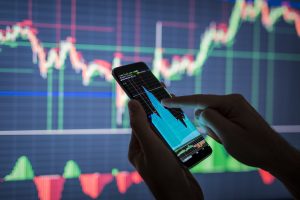Foreign Exchange Traders in Nigeria
 Among the many ways in which investors in Nigeria are earning huge sums of money is through forex trading. The volume of the market is about N300-450 million a day, and transactions are made in currency pairs, such as the Nigerian naira and the US dollar. In Nigeria, forex trading is legal as long as you use a licensed broker. Currency pairs are made by buying one currency for the sale of another, called a pair.
Among the many ways in which investors in Nigeria are earning huge sums of money is through forex trading. The volume of the market is about N300-450 million a day, and transactions are made in currency pairs, such as the Nigerian naira and the US dollar. In Nigeria, forex trading is legal as long as you use a licensed broker. Currency pairs are made by buying one currency for the sale of another, called a pair.
It is vital to find a good forex broker in Nigeria, as not all of them are trustworthy. While some forex brokers charge a very high commission on trades, others charge large fees on deposits and withdrawals. The key is to look for a forex broker with low funding fees and low spreads, which can vary widely between brokers. Make sure that the broker you are considering has the minimum deposit requirement in Nigeria. You can choose a foreign exchange broker that offers competitive exchange rates and a minimum deposit of N50,000 to get started.
Pepperstone is a popular forex broker in Nigeria, and it offers a number of features for new and experienced traders. It offers a demo account and Islamic account, which is convenient for Muslim traders. Its competitive fees and excellent educational material have earned it many industry awards. Pepperstone offers low minimum deposits and a wide variety of financial instruments, including forex, bonds, stocks, and cryptocurrencies. You can also use a mobile app to trade in the market from anywhere.
Avatrade offers traders in Nigeria a range of features and services. Its proprietary mobile app provides users with access to market news, charts, and technical analysis. The company is licensed by reputable authorities and offers low commissions. Avatrade also supports NGN Nigeria local bank transfers and offers a variety of trading instruments and features. Its reputation as the top forex broker in Nigeria is well-established. It has millions of active users.
Changing international trade patterns, institutional shifts, and the country’s internal balance have influenced the evolution of the foreign exchange market in Nigeria. Before 1958, the private sector earned the majority of foreign exchange in Nigeria. Commercial banks acted as agents for local exporters. The bulk of foreign exchange received in Nigeria was from agricultural exports. Furthermore, the Nigerian pound was tied to the British pound sterling at par. Hence, the development of an active foreign exchange market in Nigeria was delayed until 1989, when the government introduced Bureaux de Change.
Forex is risky and involves the use of leverage to increase profit potential. When the price moves 10 pips against your position, you could lose your entire account balance. Therefore, proper risk management is essential. Forex traders should never risk more than 5% of their account balance on one single trade. Although major regulators have imposed limits on leverage in Forex trading, some Nigerian forex brokers still provide high leverage, as high as 1:2000.